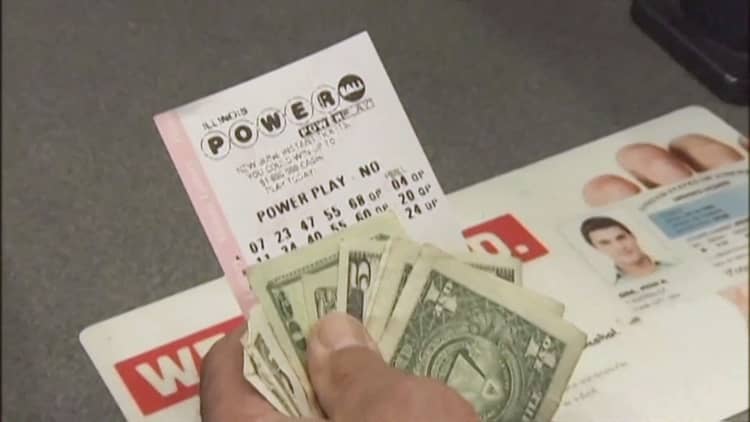The one winning Powerball ticket that was sold in New Hampshire is good for a $570 million jackpot, capping a weekend lottery jackpot haul of more than $1 billion.
The winning numbers for Saturday's drawing were 12, 29, 30, 33 and 61, plus Powerball 26.
The $570 million Powerball ranks as the fifth largest in the game's history, and the third largest awarded to a single ticket. It's also the seventh largest jackpot in U.S. lottery history.
The Powerball win comes on the heels of another huge jackpot: a single ticket sold in Florida won the $450 million Mega Millions drawing Friday.
That jackpot ranks as the fourth largest in the game's history, and the second largest awarded to a single ticket. At the time it was also the 10th largest jackpot in U.S. history; now it's the 11th largest.
Of course, this weekend's lucky winners won't walk away with the full jackpot amounts. That's just the headline sum.
If the Powerball winner opts to take the $358.5 million lump sum, lottery site USAMega.com estimates the federal tax withholding would be $89.6 million. On the Mega Millions, the $281.2 million lump sum has an estimated federal tax withholding of $70.3 million.

Those are just the amounts withheld up front; the final tax burden is likely to be even higher. (See infographic below.)
But the winners may have an extra bit of luck: Neither New Hampshire nor Florida has a state income tax. Compared with other states' rates, that's a savings of up to $24.8 million on the Mega Millions prize and $31.6 million on the Powerball, assuming the holders of the winning tickets live in the states where they bought the tickets.
Lottery winners in 2018 also face a different set of tax circumstances that may affect their final tax bill, including a slightly reduced top tax rate (37 percent, versus 39.6 percent in 2017), and a capping of paid state and local income, sales and property taxes at $10,000 as an itemized deduction.
Winners may also benefit from the tax law's changes to estate taxes. The federal legislation doubles the estate tax exemption from $5.49 million per individual to almost $11 million.
More from Your Money, Your Future:
Tax season starts on Jan. 29. Here's when to expect key forms.
New tax law is a mixed bag for your employee benefits
This tax provision helps families save on school costs, taxes






